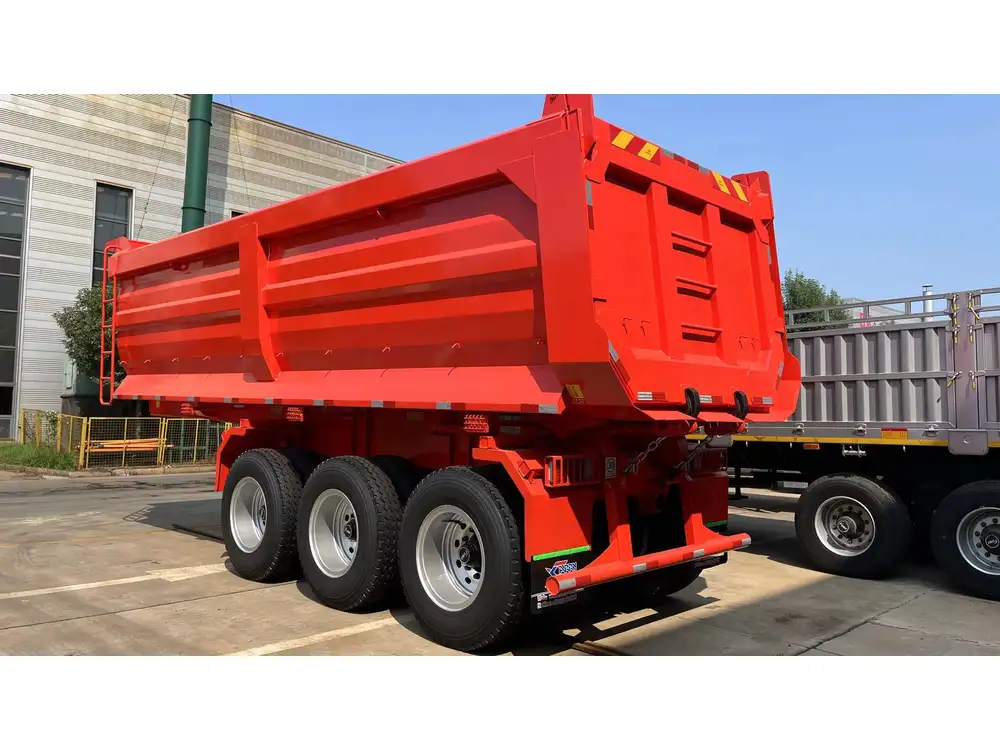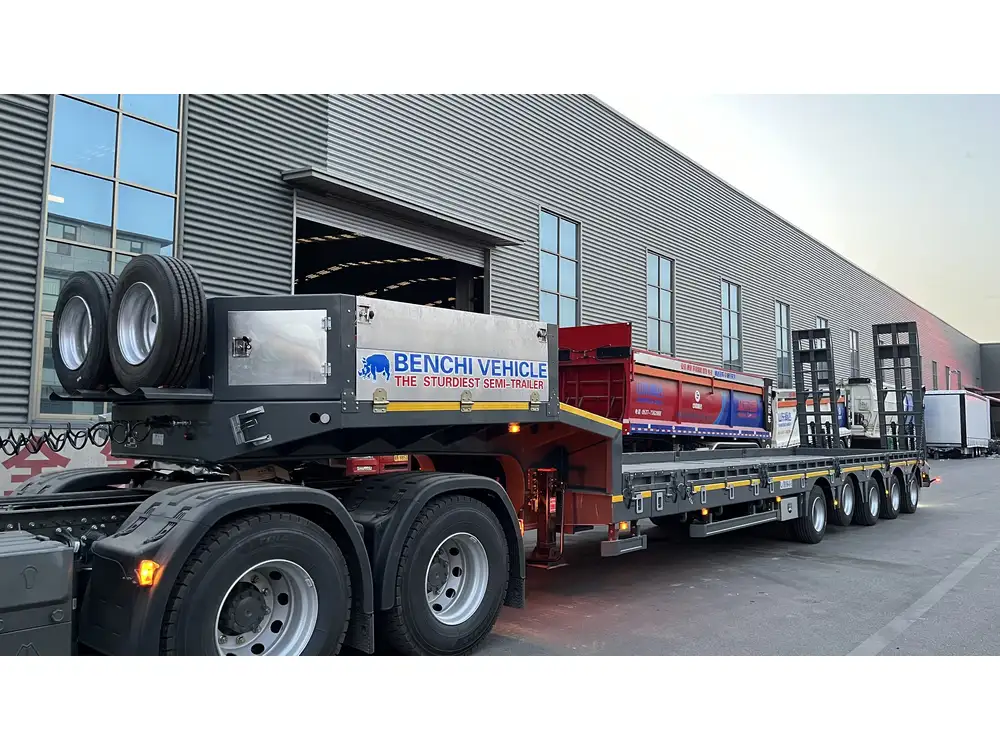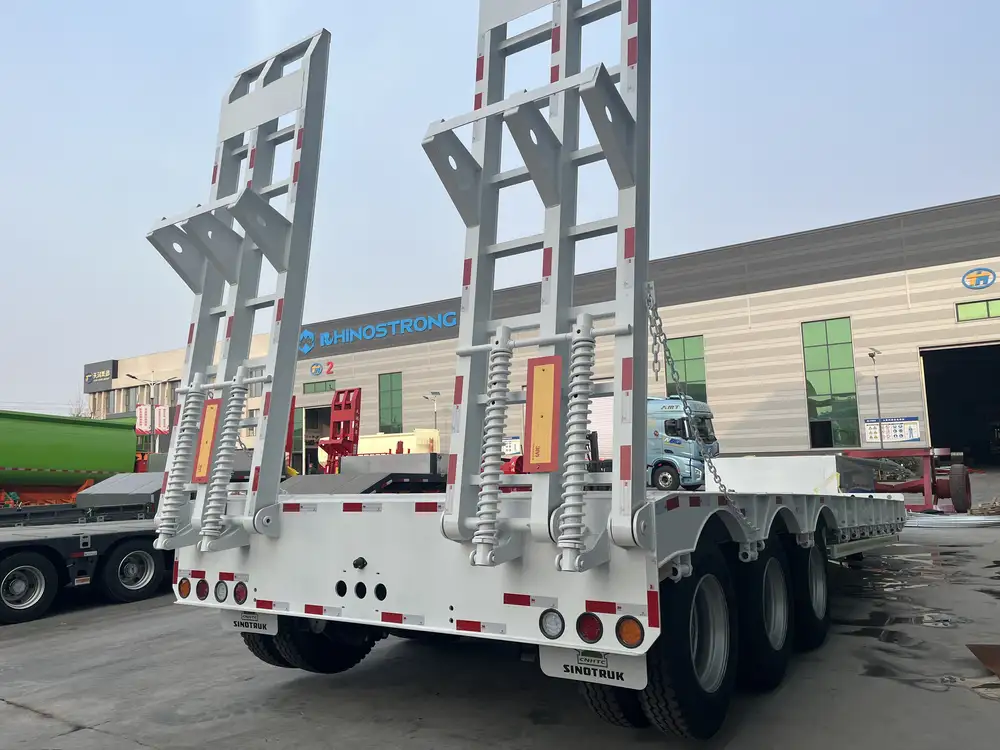As manufacturers of semi-trailers, navigating the complex landscape of taxation is crucial for both compliance and financial planning. This article delves deeply into the specifics surrounding the tax rate applied to semi-trailers in Wisconsin, addressing various scenarios and providing practical insights to streamline your operations and optimize financial outcomes.
Overview of Semi-Trailers in Wisconsin
In the realm of commercial transportation, semi-trailers serve as pivotal assets. They enhance logistical capabilities while accommodating diverse freight requirements. Ensuring compliance with Wisconsin’s taxation policies is essential for manufacturers, operators, and businesses utilizing these vehicles.
What Constitutes a Semi-Trailer?
- Definition: A semi-trailer is a trailer that does not have a front axle. It must be attached to a tractor (the towing vehicle), relying on the truck’s weight for stability on the road.
- Types: Semi-trailers encompass a variety of types, including:
- Flatbeds
- Refrigerated trailers
- Tankers
- Dry vans
Understanding these classifications plays a significant role in tax application, as rates may vary based on the type and intended use of the semi-trailer.

Tax Structure for Semi-Trailers in Wisconsin
Sales Tax Implications
In Wisconsin, the sales tax rate applies when purchasing a semi-trailer. As of the latest regulations:
| Region | Sales Tax Rate |
|---|---|
| Wisconsin (State) | 5% |
| Local County Rates | Varies (up to 0.6%) |
Total sales tax can, therefore, range from 5% to 5.6%, depending on the specific county where the purchase occurs.
Exemptions to Consider
Certain purchases may qualify for tax exemptions. Here are some instances where a semi-trailer could be exempt from sales tax:
- Resale Exemption: If the semi-trailer is intended for resale, manufacturers may avoid sales tax.
- Agricultural Use: Semi-trailers used for direct agricultural functions may also be exempt.
- Nonprofit Organizations: Registered charities or nonprofits may qualify for exemptions under specific circumstances.
Understanding these exemptions can significantly impact financial planning, potentially saving businesses substantial amounts of money.

Annual Vehicle Registration Fees
Apart from the initial sales tax, semi-trailer owners in Wisconsin must also consider annual vehicle registration fees, which are determined based on the weight of the trailer.
Registration Fee Structure
| Weight Class (lbs) | Registration Fee |
|---|---|
| 0 – 3,000 | $75 |
| 3,001 – 5,000 | $100 |
| 5,001 – 10,000 | $150 |
| 10,001 and above | $200 + $0.01 for each additional 1,000 lbs |
This fee structure highlights the importance of accurate weight reporting and compliance.
Operating a Semi-Trailer: Additional Taxes

Fuel Taxes
For those operating semi-trailers, fuel taxes are another critical consideration. Wisconsin imposes a fuel tax that impacts the profitability of running heavy vehicles.
- Gasoline Tax: Approximately 32.9 cents per gallon.
- Diesel Fuel Tax: Roughly 32.9 cents per gallon, with additional compliance for weight distance tax based on the miles driven.
Understanding these fuel taxes is essential when calculating operational costs and profitability.
Employment-Related Taxes
For businesses employing drivers, additional taxes must be accounted for:
- Withholding Taxes: Employers must withhold state income taxes from their employees’ wages.
- Unemployment Insurance Taxes: Applicable on employee earnings, contributing to state unemployment funds.
These components can amplify operational expenditures and require precise calculations to ensure compliance and avoid penalties.
Compliance and Reporting Requirements
Keeping compliant with Wisconsin’s tax laws involves diligent record-keeping and timely reporting. Here are essential guidelines to follow:

Documentation Standards
- Sales Invoices: Maintain detailed sales records for semi-trailer transactions.
- Purchase Orders: Archive documents relating to any tax-exempt purchases for audit purposes.
- Operating Costs Records: Retain fuel purchase receipts, maintenance logs, and driver wage information.
Tax Filing Deadlines
Awareness of tax filing deadlines is crucial for compliance:
- Sales Tax Returns: Typically due quarterly or annually, depending on your business structure.
- Income Tax Returns: Required by the 15th day of the fourth month after the end of your fiscal year.
Penalties for Non-Compliance
Failing to comply with Wisconsin’s tax regulations can result in hefty penalties:
| Infraction | Typical Penalty |
|---|---|
| Late Filing of Taxes | 5% of unpaid tax per month |
| Misclassification of Vehicles | Fines based on underreported values |
| Failure to Report Fuel Usage | Penalties based on the estimated revenue |
Avoiding these pitfalls involves a thorough understanding of the state’s regulations and maintaining meticulous financial records.

Strategic Tax Planning for Semi-Trailer Businesses
To maximize efficiency and minimize tax burdens, consider these strategic avenues for semi-trailer operations:
Engage Tax Professionals
Consulting with a tax advisor who specializes in transportation and vehicle taxation can yield valuable insights. They can provide tailored strategies dealing with deductions, exemptions, and compliance.
Explore Fleet Tax Credits
Investigate available tax credits for businesses that invest in newer, eco-friendly semi-trailer models. Transitioning to alternative fuels or energy-efficient equipment may offer significant incentives.

Implement Efficient Operations
Routinely track and analyze operational costs, including maintenance, driver wages, and fuel expenses. Employing software systems that track these expenditures can reveal cost-saving opportunities and improve overall efficiency.
Conclusion: Navigating Wisconsin’s Tax Landscape
Understanding the intricacies of the tax rate on Wisconsin semi-trailers is paramount for manufacturers, operators, and businesses. A thorough grasp of sales tax implications, annual registration fees, and operational taxes ensures compliance while uncovering potential savings through exemptions and credits. Vigilant record-keeping along with strategic planning can lead to a more profitable operation, keeping businesses resilient in an ever-evolving regulatory environment.
Armed with the insights shared in this extensive guide, manufacturers and owners are well-equipped to navigate Wisconsin’s taxation landscape, minimizing liabilities and maximizing operational efficiency. It is imperative to stay informed and proactive in addressing any changes in legislation to ensure continuous compliance and financial health.



